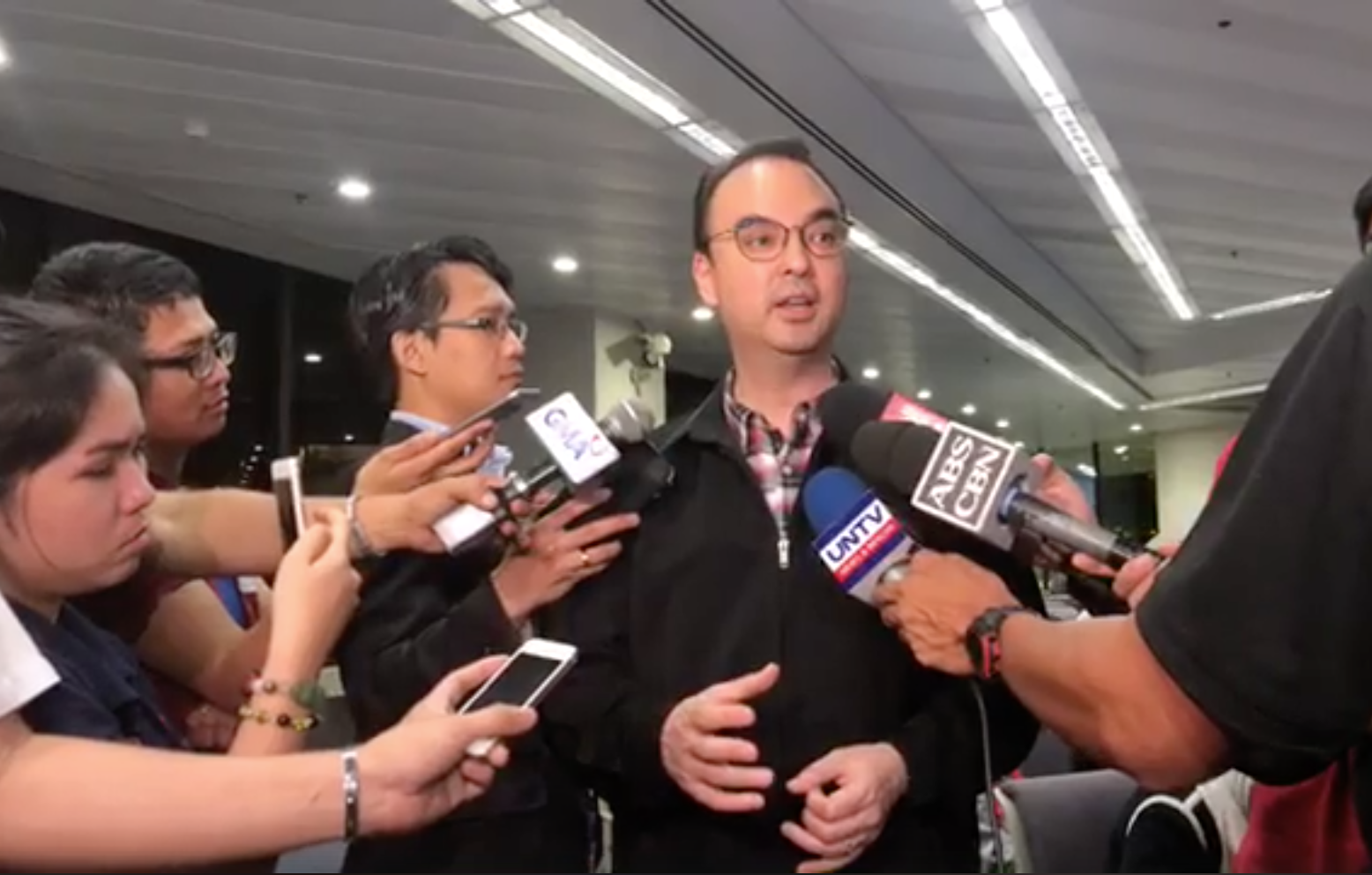Embarrassing situations involving high-profile leaders diminish what’s left of the integrity and credibility of Congress as an institution, making it important to think about options in the next elections.
It costs taxpayers roughly P30 billion a year to keep the legislature, plus the legislators’ pork barrel insertions for their pet projects that run into billions of pesos. For 2020, the pork barrel funds tucked in the allocations of various agencies, notably the Department of Public Works and Highways (DPWH), amount to at least P16 billion, based on estimates of Sen. Panfilo Lacson, a critic of the system.
Pork barrel refers to funds for projects chosen by legislators in their respective jurisdictions to please voters. The president can also dangle it to legislators to win their support.
In the ongoing leadership struggle at the House of Representatives between Alan Peter Cayetano of Taguig- Pateros and Lord Allan Velasco of Marinduque, it became quite clear last week that it isn’t just a fight over being called speaker when they celebrate their birthdays — Cayetano turns 50 years old on Oct. 28 while Velasco will be 43 on Nov. 9 — but also a battle over money — billions in pork barrel funds.
If we are to believe Velasco’s ally, Rep. Arnolfo Teves Jr. of Negros Oriental, Pateros and Taguig’s two districts that Cayetano shares with his wife Lani stands to get P11.1 billion in infrastructure funds from the P4.5 trillion national government budget for 2021.
In a surprised move on Oct. 6, Cayetano railroaded the second reading approval of the proposed 2021 budget and his allies moved to adjourn the session until Nov. 16. This effectively preempted plans of Velasco’s allies to take over the speakership on Oct. 14. It also fulfills Cayetano’s wish to still hold the 4th highest position in government when he marks his 50th birthday while frustrating Velasco’s dream to be called speaker on his 43rd birthday.
Hours later, a photo of Cayetano kneeling down while being prayed over by his colleagues went around social media. The Bible-quoting Cayetano was holding the 2021 proposed budget, not the Bible.
The 2021 budget is significant because it is for projects and activities that can be used in preparation for the 2022 elections. It is an election year budget, in short, and Cayetano, who lost in the 2016 race for vice president, is rumored to still be entertaining the thoughts of seeking the presidency.
In July 2018, Rep. Gloria Macapagal-Arroyo of Pampanga wrestled the speakership in a dramatic scene that delayed President Duterte’s state of the nation address for more than an hour. That embarrassing situation marked Arroyo’s major political comeback since she stepped down from the presidency in June 2010.
What a coincidence that Arroyo then got 184 votes in that chaotic takeover from Pantaleon Alvarez of Davao del Norte and Cayetano’s offer to resign last Sept. 20 was rejected by 184 lawmakers.
With that incident, Arroyo now holds the distinction of being the first woman and first Philippine president to become speaker of the House of Representatives. What a glorious feat, she may claim.
Where in the world do politicians get the idea that they’re serving the public good by thrashing procedures and protocols in taking over positions for self-serving interests? With advanced technology, these events take place before a global audience, not just in the confines of a boardroom.
Greed for power, you may say. These unpleasant events in the history of the legislature demean the institution all for the sake of selfish interests. These ugly spectacles reduce the relevance of Congress as a lawmaking body composed of honorable men and women, and as a powerful institution that charts the country’s future through the power of appropriation and pieces of legislation that defines policies and creates programs beneficial to a large majority of the population, voters or not.
Instead of engaging in endless bickering and lusting for power and influence, Congress leaders have the sacred duty and responsibility to work for the greater good, setting aside personal interests.
What the ongoing struggle for House speakership demonstrates is utter abuse of power and arrogance for selfish ends. This teaches us an important lesson for the next elections, that is, to cautiously choose and vote for candidates who have genuine public service not only in mind but also in deeds; candidates who are good not only in making promises but also in making their promises happen, and delivering even more to their constituency.
Perhaps the better solution to the squabble for House speakership is to have all positions vacant and call for a new set of leaders, instead of insisting on the gentlemen’s agreement among dishonorable men.
It should also serve as a lesson for the president to avoid meddling in internal affairs of a separate branch of government in respect of its independence. Congress is supposed to check the excesses of the executive branch, and vice versa, not as collaborators in pursuit of partisan and personal interests.
The 2019 coronavirus disease (Covid-19) pandemic has taught us many painful lessons, and one of those is the importance of discernment in choosing leaders. As cliche as it may sound, we should really vote wisely in the next elections.
The views in this column are those of the author and do not necessarily reflect the views of VERA Files.





